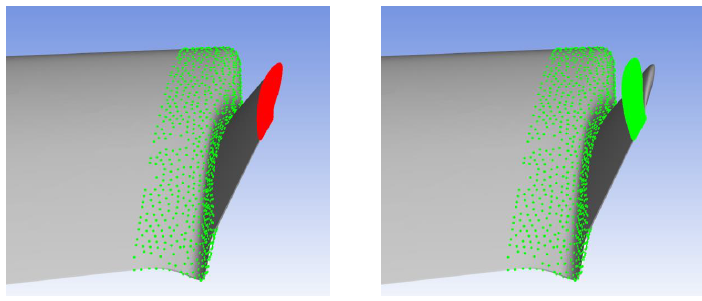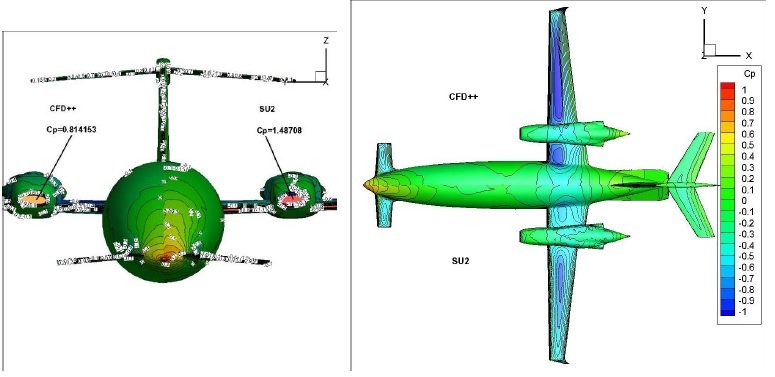
The article published by RBF Morph on the EnginSoft Newsletter Year 16 n°2 Summer 2019 describes a fluid-structure interaction(FSI) optimization carried out for the P180 Avanti EVO vehicle, a business aircraft designed and manufactured by Piaggio Aerospace.
It shows the use of an additional module for the RBF4AERO platform, rbf4aerpFSI, designed and validated to work with both commercial and open source solvers. The platform’s key elements are tools that existed prior to the RBF4ERO project that were improved and suitably integrated into a single comprehensive working environment over the duration of the project. Specifically, they include the morpher tool (MT) – the commercial standalone version of the RBF Morph technology; the optimization Manager (OM) – employed to run single- and multi-objective optimization (SOO and MOO) problems using evolutionary algorithms (EA) assisted by off-line trained surrogate evaluation models (metamodels); and the in-house developed adjoint solver for the OpenFOAM suite.
Using the case of the winglet of a mid-sized business aircraft in cruise conditions, the RBF4AERO platform’s effectiveness to perform a highly automated optimization study, while also accounting for the effect of the wing’s elasticity, was demonstrated.
This optimization was undertaken by adopting the mode superposition method, even though the wet surfaces of the CFD and FEM models did not match.

This study showed the margins for improving the aerodynamic efficiency of an industrial vehicle, since the mesh morphing methodology can help to optimize the shape of the winglet in order to achieve, for instance, a reduction in fuel consumption during flight.
The RBF4AERO platform confirmed itself to be a potential numerical means of offering CAE services over cloud infrastructures such as the Fortissimo Marketplace in the software as a service (SaaS) paradigm.
For a comprehensive read of this engaging discussion, we invite you to explore the full article by following this link.
